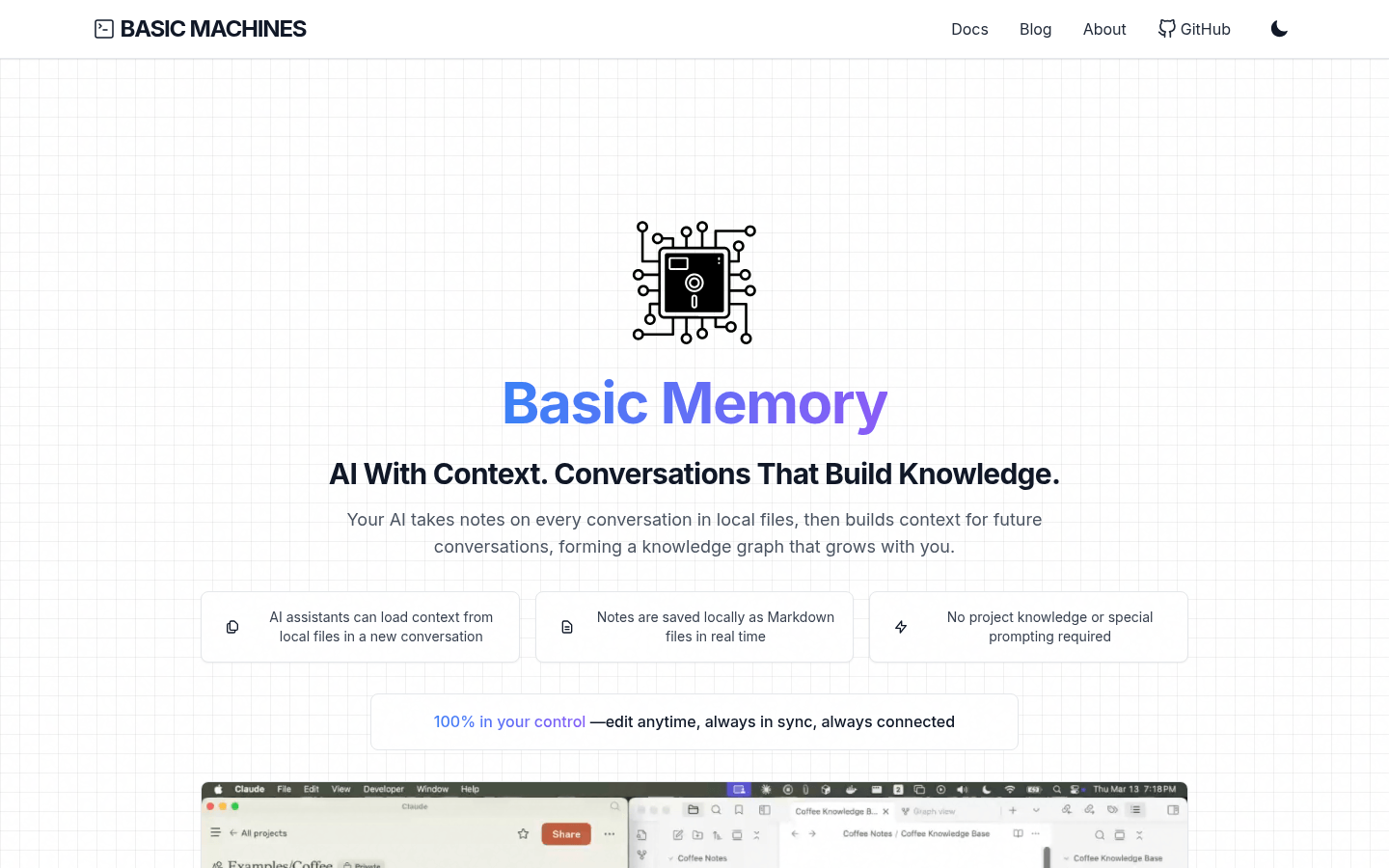

Basic Memory
Overview :
Basic Memory is a knowledge management system that leverages natural conversations with LLMs to build persistent knowledge, saving it to local Markdown files. It solves the problem of short-lived LLM interactions and difficulty retaining knowledge. Its advantages include local priority, bidirectional read/write, simple structure, knowledge graph formation, compatibility with existing editors, and lightweight infrastructure. It aims to help users build a personal knowledge base and uses the AGPL-3.0 license with no explicitly stated price.
Target Users :
Targeted at users who want to effectively manage knowledge and deeply interact with LLMs. This product is suitable for them because it allows for local knowledge storage, facilitating management and accumulation. Bidirectional reading and writing, along with knowledge graph functionality, assist in knowledge construction and expansion. Compatibility with common editors lowers the barrier to entry.
Use Cases
Explore and expand knowledge on coffee brewing methods.
Record architectural decisions and related content during project development.
Find information about JWT authentication in notes.
Features
Engage in natural conversations with LLMs, building on prior knowledge.
Create structured notes in Markdown format during conversations.
Enable LLMs to remember previous discussion points, facilitating knowledge accumulation.
Navigate a semantic knowledge graph for easy access to related information.
View and edit notes using familiar tools like Obsidian.
Maintain knowledge locally, giving users complete data control.
Ensure consistent knowledge updates through real-time synchronization.
How to Use
1. Install using uv: uv tool install basic - memory
2. Configure Claude Desktop: Edit ~/Library/Application Support/Claude/claude_desktop_config.json, adding the relevant mcpServers configuration
3. Synchronize knowledge: Run basic - memory sync for a one-time synchronization, or basic - memory sync --watch for real-time synchronization
4. In Claude Desktop, use specific commands such as write_note, read_note, etc.
Featured AI Tools
English Picks

Popai
PopAi is a product providing AI assistant services, integrated with GPT-3.5 technology. It offers powerful chat, document creation, and creative generation capabilities. Users can interact with AI by uploading files or links, or leverage AI to assist with tasks like educational writing, professional writing, presentation creation, and programming problem-solving. PopAi aims to enhance user productivity and creativity, offering a superior AI assistant experience.
Personal Assistance
1.7M

Named By AI
AI naming is an intelligent name tool that uses artificial intelligence to help you find unique and meaningful names for your baby. You can choose the baby's gender, name origin, name theme, and popularity, and AI naming will generate a series of excellent names based on your preferences and tastes.
Personal Assistance
1.1M















